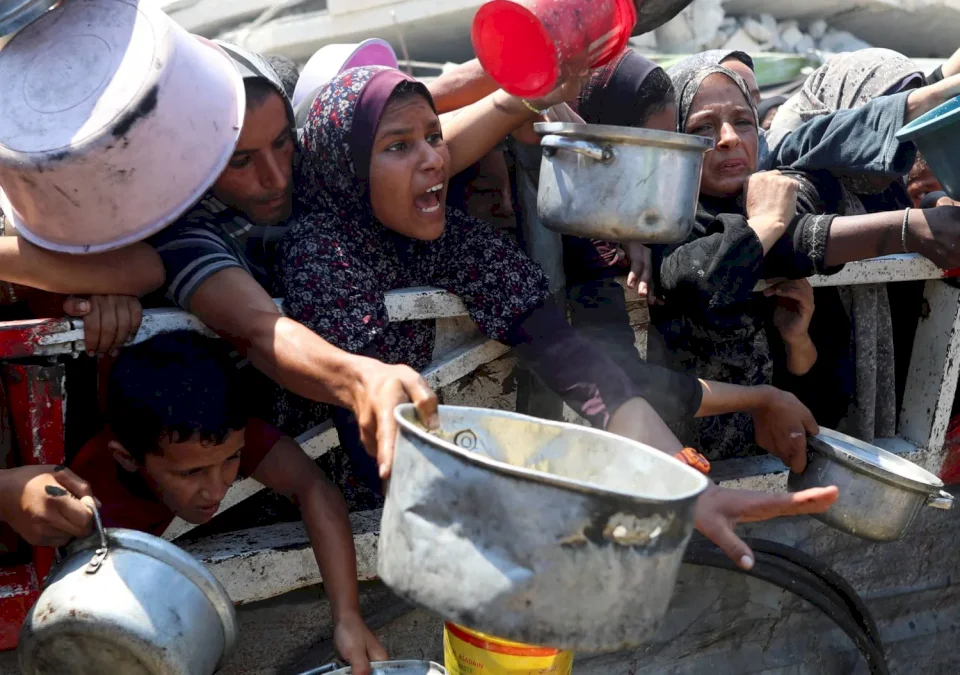
The Gaza Famine... How Israel Intentionally Starves Palestinians?
SadaNews - The calculus of famine in Gaza is simple; the residents cannot leave, agriculture has stopped due to war, and Israel has banned fishing, which means almost every calorie consumed by Palestinians must be imported from abroad, according to a report by the British newspaper "The Guardian".
Israel is fully aware of the amount of food the population needs, as it has been calibrating hunger for years, through calculations aimed at applying pressure without reaching the point of starving to death. In 2006, an advisor to then Israeli Prime Minister Ehud Olmert stated, "The idea is to put Palestinians on a diet without them dying of hunger." Two years later, the government was forced to release documents revealing the details of these horrifying calculations, according to "The Guardian".
At that time, the Israeli "Cogat" unit, responsible for coordinating the entry of aid, estimated that Palestinians needed 2,279 calories per day per person, which is equivalent to about 1.8 kilograms of food daily.
Today, humanitarian organizations are calling for a lower minimum; about 62,000 tons of dry and canned food monthly to feed 2.1 million people, or about one kilogram per day per person.
However, between March and June of this year, Israel allowed only 56,000 tons to enter, less than a quarter of the needs, according to its official data.
According to "The Guardian", despite the pictures published by Israel of the aid stacked at the crossings, the documented data reveals that Israel intentionally starves Gaza.
Despite attempts to blame "Hamas" or the failure of the United Nations in distribution, the "Independent Commission for Reviewing Famine" confirmed that the food shipments are "catastrophically insufficient", and that the distribution plans of the "Gaza Humanitarian Foundation" backed by Israel and the United States "lead to famine, without surrounding violence".
In March and April, Gaza was under a complete blockade. Then, under international pressure, Israeli Prime Minister Benjamin Netanyahu announced in mid-May the resumption of aid entry. However, the quantities were very limited, only sufficient to slow down the famine, not stop it.
As the aerial drop of aid resumes, despite it being an expensive and dangerous means, Israel and its allies continue to portray the famine as a logistical crisis, not a deliberate policy, while Israeli organizations such as "B'Tselem" indicate that what is happening is a "declared policy" of collective starvation.

High-level sources reveal to SadaNews: Washington seeks to hold a Gaza Reconstruction Conf...

9 Dead and Dozens Injured in Beit Shemesh, Shrapnel Hits Jerusalem, Haifa, and Tiberias

30 Bombs.. A "Unique" Moment Exploited by Washington and Tel Aviv to Target the Supreme Le...

Iran Confirms Khamenei's Death and Announces 40 Days of Mourning

Exclusive SadaNews: What is the Secret behind the Timing of the Israeli-American Attack?!

Israel Deducts 258 Million Shekels from Palestinian "Clearing" Funds for the Benefit of Fa...

Where Does the Second Phase of the Ceasefire Agreement Stand?!

